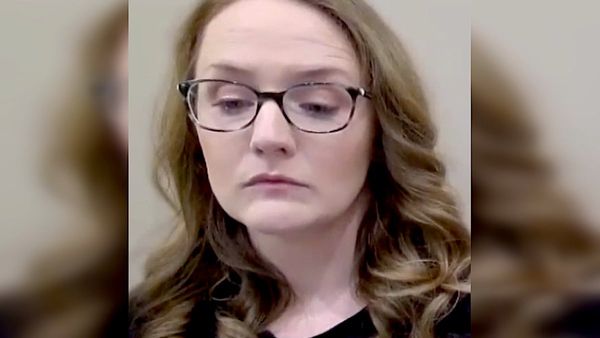Deaclan Crowley never imagined he would be relying on a charity to get by, but after his mum was involved in a major car accident Foodbank has become an essential stop for him over the past six months.
With his mum's income slashed, not only did Deaclan's family need cheaper groceries, they also had to sell much of their personal belongings.
"Honestly, it was kind of depressing having to sell stuff to just make ends meet or to have food in the house," he said.
"Trying to decide what things we can and can't actually have from now on and that was pretty confronting."
Deaclan and his sisters have been visiting Darwin's only Foodbank, a food rescue and hunger-relief organisation, where they can buy items at a substantially cheaper price than normal shops.
Scouring the aisles for a bargain, Deaclan said even though it's busy, he knows plenty of people who should come to the makeshift shop but don't.
"It was shocking to see how many people access it but I do hear constantly from other people that they don't access this kind of stuff, that they're too embarrassed," he said.
Melysen Herberz is 62 years old and is at the other end of the generational divide. Women like her make up the fastest growing cohort of homeless people.
The part-time work she does as a cleaner in Darwin isn't enough to support herself and her husband, who's on the aged pension.
"Because if [I'm in] another store there is some expensive stuff, I cannot pay for that because I'm low income," she said.
New data from OzHarvest, which surveyed charities across the country, found 73 per cent of charities had seen an increase in the number of people needing food.
It also found that 31 per cent of people coming through for support have never accessed these kinds of services before.
Unfit fit for sale, but good enough to eat
The work to actually support people like Deaclan and Meysen is done at the very same warehouses they shop at.
During the week, trucks are guided in and out, undertaking what's called a food rescue.
Trevor Dugdell and Joyce Morrison ride the city route and visit the loading bays of major food retailers around Darwin trying to save produce that would otherwise go to waste.
"Anything that stores a sort of … not A-class quality — they take it off the shelves in the store there and they put it aside for us to come and collect," he said.
Once they get to each site it's a matter of pot luck.
"You just don't know what you're going to get. Some days you can come in and get very little other days you can get quite a bit," he said.
"Everything is still okay, like there's nothing wrong with the produce stuff that we get.
"It's just rather than the company dumping it, they just send it out to us."
Others taking less conventional approach
Across Australia there's also a growing movement of people attempting alternate means to save quality goods.
One of its more successful practitioners is Brenden Rikihana, known to his followers as Big B, who dumpster divers across Perth.
Though he salvages produce in WA, he traces his frugality to his upbringing in New Zealand.
"I didn't come from a very rich family, [we were] a large family.
"Everything was used. Nothing went to waste."
His recorded night trips have garnered him a social media following, which he says have led others taking up the "way of life".
"I've been an inspiration to a few people that I stay in contact with," he said.
"Some of them have even become content creators and gone ahead and documented their own dumpster diving as a result of my videos."
Charities warn more support needed
Larger providers like OzHarvest and Foodbank have both warned the support for people living with food insecurity isn't keeping pace.
OzHarvest's Sydney market opened in 2020 and serves around 2,000 people a week. State Manager Richard Watson said a shortfall in support has been frustrating.
"Government at all levels don't seem to be helping us out at the moment and when the need is the highest it's ever been and continues to increase it's disappointing."
Mr Watson said the federal budget was a missed opportunity as his and other organisations contend with a growing number of people who are working and still unable to put food on their table.
"Basic requirements of food and housing was missed out of the federal budget altogether."
"This is people that are potentially in employment, but are really doing it really doing it tough at the moment."







